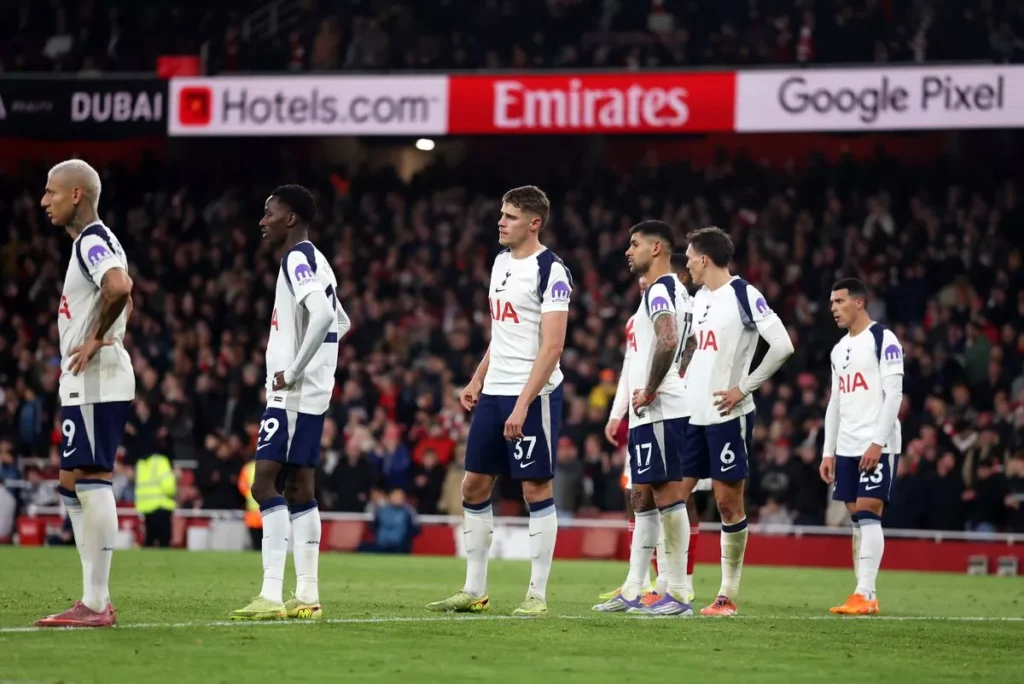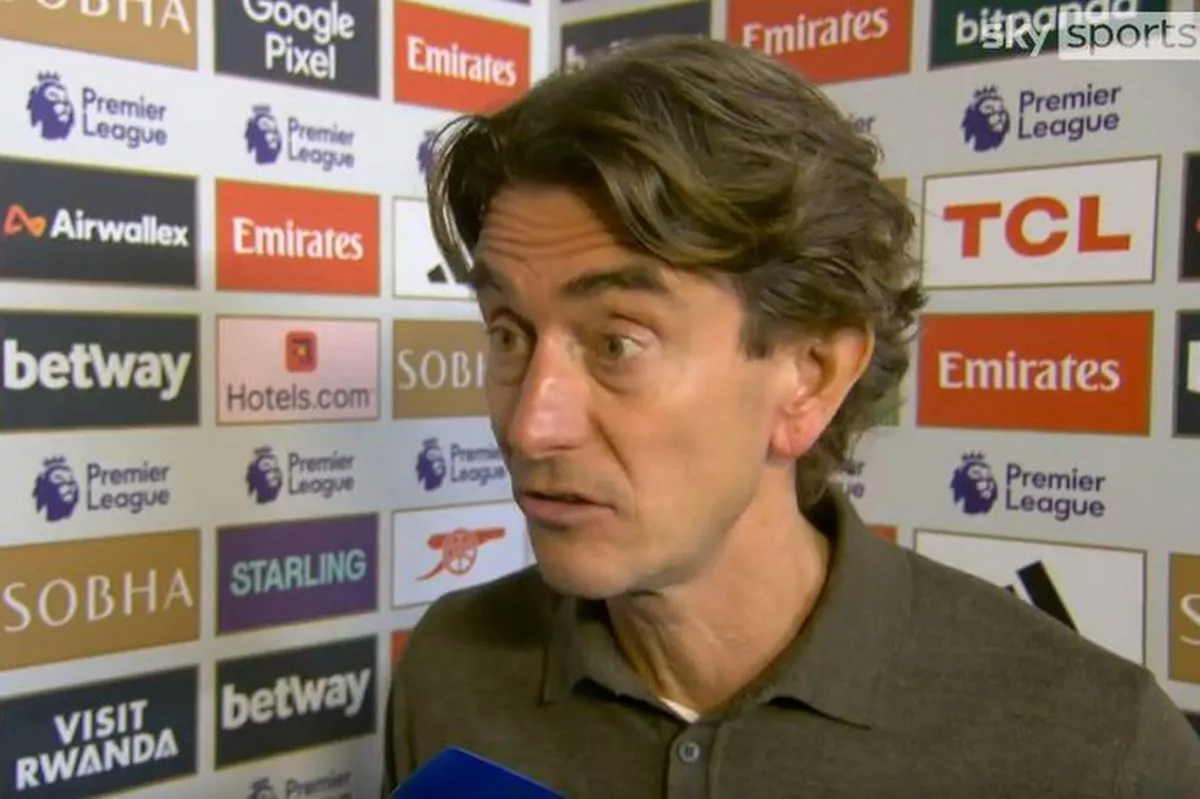Thomas Frank found himself under immense scrutiny after Tottenham suffered a crushing 4-1 defeat to Arsenal, a result that left travelling supporters furious and a manager openly accepting blame.
It was a North London derby that Tottenham fans will want to forget quickly, not only because of the scoreline, but because of how flat, unprepared and overwhelmed their team looked from start to finish. Arsenal dominated every department, and by the end of the night, the away end had almost completely emptied as Spurs fans chose to leave early rather than witness more frustration.
Frank did not try to hide from the situation. He stood in front of the cameras afterwards and took full responsibility for the defeat. He apologised to the supporters who had made the trip across the city, acknowledging that the team failed to show any aggression, intensity or belief in a match that means everything to those fans.
What made the loss worse was the manner of it. Tottenham looked passive, slow and disconnected, and Frank admitted that his tactical plan simply did not work.
The manager had chosen to start with a back three, a decision that backfired badly. He explained that it was only the second time they had used the system this season, the other being the European Super Cup against Paris Saint-Germain another game they lost.

At half-time, he abandoned the approach, but by then the damage was already done. Arsenal scored their third goal within a minute of the second half beginning, a moment that crushed what little hope Spurs may have had of turning things around.
An additional worrying statistic emerged after the match: Tottenham have now recorded the two lowest expected goal totals of any Premier League team this season.
Their xG of 0.07 against Arsenal and 0.1 against Chelsea earlier in November paints a clear picture of a side struggling badly to create chances. This lack of threat is alarming and raises bigger questions about the team’s identity and attacking structure.
Frank insisted that any formation can work if the team executes it properly, but accepted that his team failed to do the basics right. He pointed out that Tottenham needed to be more aggressive, win more duels and impose themselves on Arsenal physically none of which happened.
While the creativity was almost nonexistent, he argued that the real problem was their lack of intensity in key moments. They failed to recover the ball, failed to press effectively, and gave Arsenal far too much space to play in.
He was honest in saying that the performance was concerning. He admitted that the players were too passive, unable to get close enough to Arsenal and unable to build anything meaningful when they finally had possession.
Tottenham tried to press high at times, but Frank conceded that it simply did not work. They were pushed back repeatedly and often looked like they were chasing shadows. When they won the ball, they struggled to escape pressure and lost it again too easily.
Frank noted the painful difference between where Arsenal are in their project compared to where Tottenham currently stand. He described Arsenal as being six years into their development under Mikel Arteta, whereas he himself has been in charge for only four months.
Even so, he admitted he expected far more from his players in such an important match. He did not think Spurs would dominate for the entire 90 minutes, but he believed they would at least compete with more conviction, as they recently had against Manchester City and Paris Saint-Germain.
The defeat places Tottenham in ninth place, 11 points behind Arsenal, and adds pressure on a team still searching for a stable identity. Frank pleaded for patience, reminding critics that Spurs finished 17th last season despite winning the Europa League. He said the club is trying to rebuild and acknowledged that results like this make the process harder for fans to believe in.
He ended by saying that the team still has a long way to go, but he is committed to improving them. He repeated his apology to the supporters and accepted that the performance did not reflect the standards the club is trying to reach.
Tottenham now face the difficult task of regrouping, restoring confidence and proving that this derby defeat was a step backward, not a sign of deeper problems they cannot fix.
